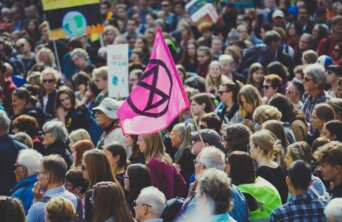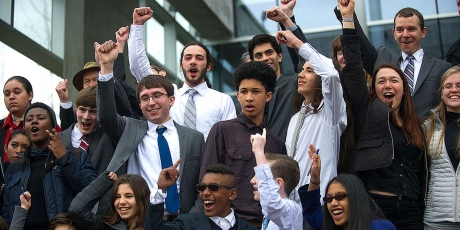- About
- Topics
- Picks
- Audio
- Story
- In-Depth
- Opinion
- News
- Donate
- Signup for our newsletterOur Editors' Best Picks.Send
Read, Debate: Engage.
| located: | United Kingdom |
|---|---|
| editor: | Gurmeet Singh |
Extinction is a highly racialised idea, even if these days we tend to only associate it with stuffed birds in museums. Darwin and others conceived of existence as struggle – species were continually vying for resources and space, and if a species was going to survive, it had to eliminate competitors, especially less advanced forms of a species.
This idea included humans, and eventually led to the Darwinist justification of genocides, and also of course, to the various, colourful forms of social Darwinism. Struggle, competition and replacement – themes which continue to permeate the anxieties of the far-right. They believe that they should, as a higher form of humanity, replace others. That’s why they fear themselves of being replaced.
All this being said, Extinction Rebellion obviously doesn’t employ this definition in its name. It’s much more straightforward and blunt. The planet is threatened by human, capitalist activity, and the planet will respond and destroy organised human life via climate change. Humans must rebel against the systems which perpetuate climate change, namely, the economic system that pollutes the world. The group, founded in 2018 and having already reached international prominence by the end of the year, uses disruptive tactics to get their message across, and initiate a rebellion – the mass gatherings and disruptions of everyday economic activity, as well as quite theatrical protests.
It seems very much as though the group is doing the right thing, and in it for the right reasons. So why does it seem as though Extinction Rebellion has a race issue?
Firstly, there’s a slightly telling way in which the movement formed via letters written in newspapers and signed by academics. These provided a call-to-arms for university students, and professional people to come together to tackle climate change. The group started as an enclosed space of the professional and the educated. Though this may not be elitist per se, it certainly excludes a lot of people who aren’t influenced by certain newspapers, nor in contact with the ideas of prominent academics.
Secondly, the Extinction Rebellion group has certain currents of 'eco-fascism' running through it. Eco-facism isn’t a coherent ideology in the same way that say, conservatism is, but it loosely finds its expressions in high concerns for the environment, coupled with claims to land and heritage, and sometimes by excluding ‘others’ on the grounds of their illegitimate claims to land. For example, Paul Kingsnorth, a writer and climate activist, has wholeheartedly supported the movement, and Kingsnorth’s other writings display a worrying form of eco-fascism. A ‘pure moment’ before the arrival of the other, industry and capitalism. For him, and certainly many others in the movement, migration itself is part of the climate problem; people should stay where they have claims to land and heritage.
Thirdly, the movement has relied on the willingness of protestors to be arrested. It has encouraged protestors to be prepared to be taken to prison, even for long periods of time, without acknowledging the structural racism of the police and the institutional racism of the prison system. A black protestor and a white protestor would no doubt fare differently if arrested.
Finally, there’s simply the middle-classness to the protests. Where a Fair Planet editor attests that there were people of colour at the protests, the protests themselves seem to be toned to the generally bland kind of middle-class palette – veganism, mindfulness, and a kind of circus-like atmosphere. Not in themselves bad things of course, but speaking very honestly, this is precisely the image that puts off many working class people (including working class POC) from joining such movements.
So it might not be convincing to say that Extinction Rebellion is racist as such. It doesn’t actively seek to exclude anyone - but it is perhaps racist by accident. By being too convinced of its own goal, it forgets to properly think through the method, leaving many people out of the loop.
Take as a point of contrast Greta Thurnburg’s protests. She has encouraged everyone, and particularly all school students, to march against climate change. Indeed, there may be an issue in how POC children would be policed in contrast to white children, but notice the difference between Thurnburg and Extinction Rebellion: she’s called everyone to arms, not just some people who read a newspaper.

